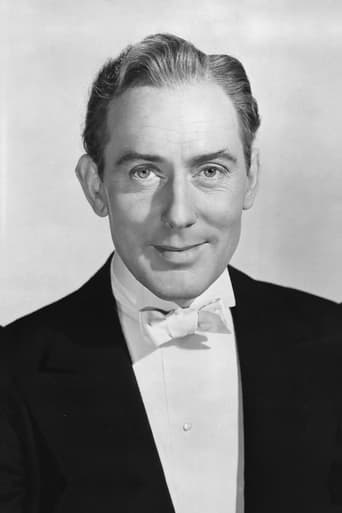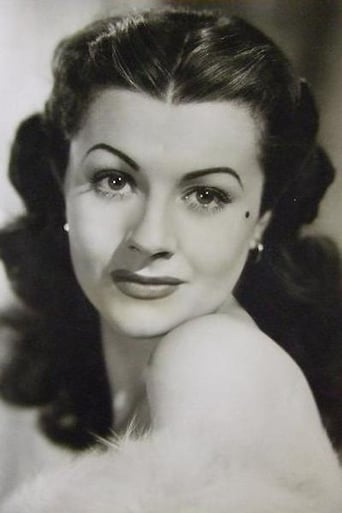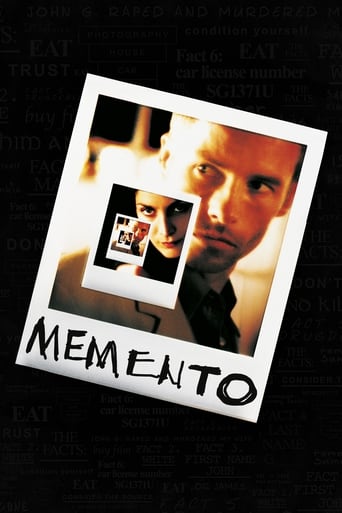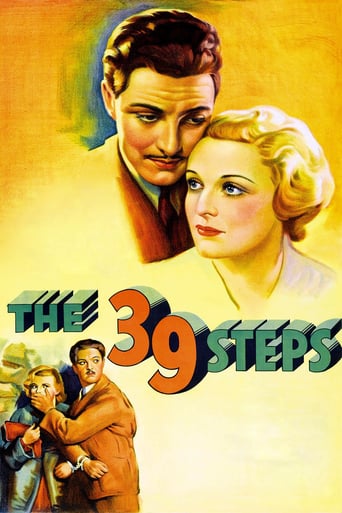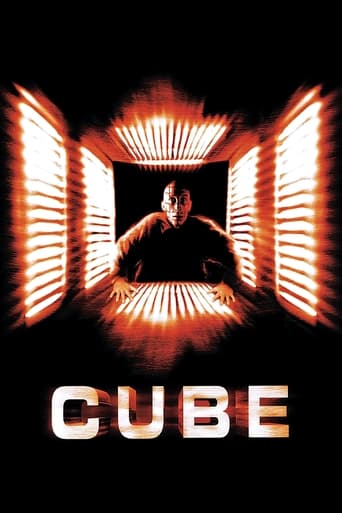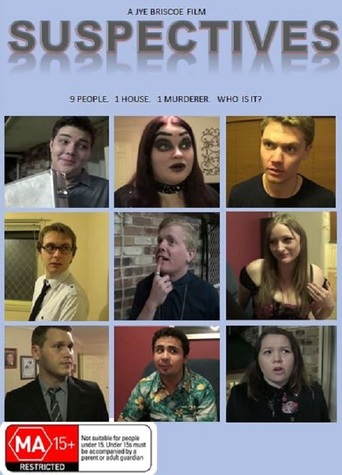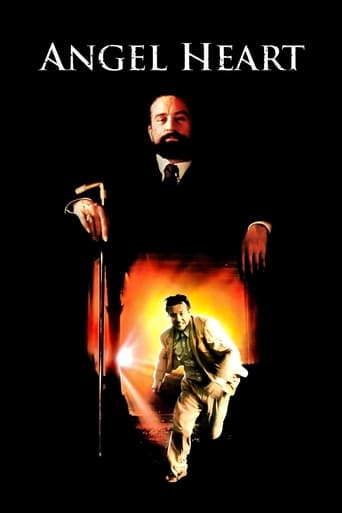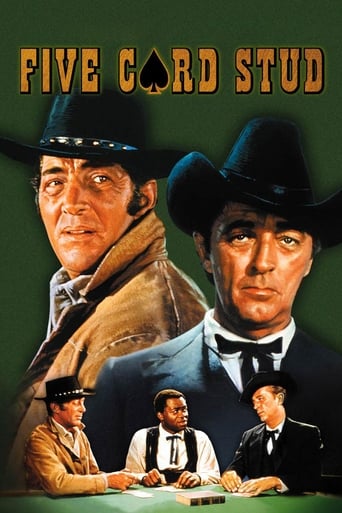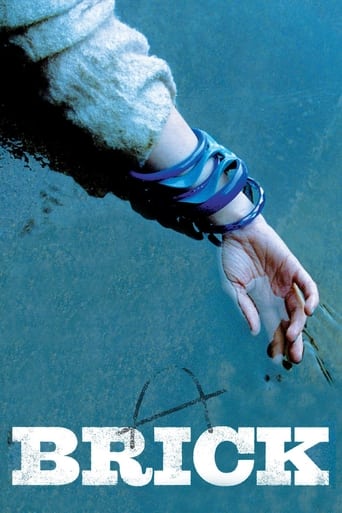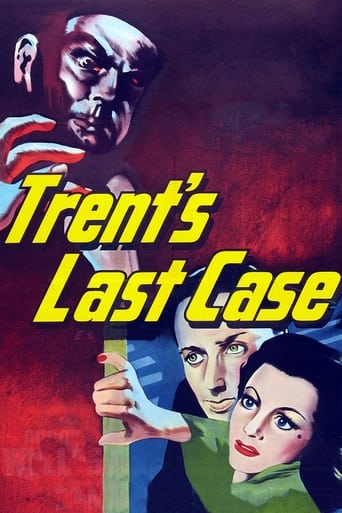
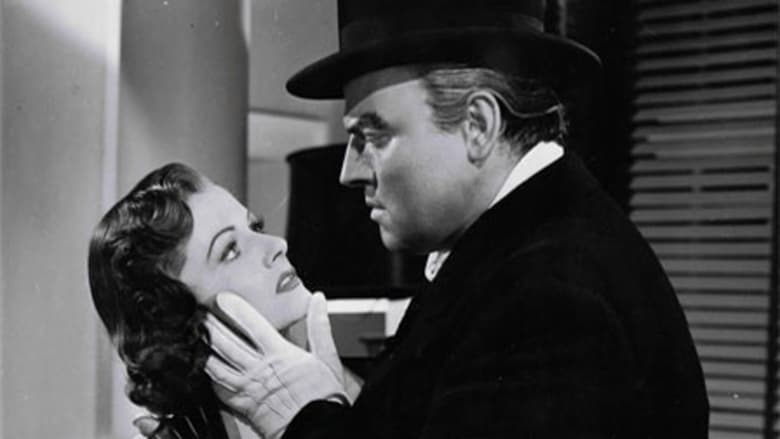
Trent's Last Case (1952)
When a wealthy business man is found dead reporter Philip Trent is sent to investigate. Against the police conclusions, he suspects the assumed suicide is really a murder, and becomes highly interested in the young widow and the dead man's private secretary.
Watch Trailer
Cast


Similar titles
Reviews
Yawn. Poorly Filmed Snooze Fest.
If you don't like this, we can't be friends.
Absolutely Fantastic
If the ambition is to provide two hours of instantly forgettable, popcorn-munching escapism, it succeeds.
This is pure whodunit,in the grand tradition of Agatha Christie and there are similarities with the lady of crime's "murder on the links" ,but the solution is not as brilliant as hers ,because in this field,she has no equal.Anyway ,everyone who likes Christie will relish .A desirable mansion ,where a man took his own life (or was it murder?) and suspects including two secretaries,one of whom may be in love with the dead's wife and the other one may be jealous.But the main asset of the movie is the wealthy (suicidal?) businessman ,masterfully portrayed by Orson Welles whom we only see in flashbacks :the scene when we hear his formidable voice ,but only the back of his armchair gives the jitters. Michael Wilding has no gray cells,but he displays flair for clues ,as though he had be trained by Hercule Poirot.Entertaining whodunit.
All the characters just talk and talk till the proverbial cows come home.There is hardly any action and when it does occur it is talked over by one of the characters.Unfortunately by this stage of his career Herbert Wilcox had clearly lost whatever touch he had in the first place.After his success with Anna Neagle in the forties he turned out one dud after another in the fifties and by the end of the decade he was bankrupt.Quite frankly this film is more akin to a radio play than a film.I suggest that for say 5 minutes you turn down the picture brightness and just listen.You will not miss a thing.There is absolutely nothing cinematic about this film.The only point of suspense is how long are we going to have to wait for Orson to appear and how long will he appear for.Other than that the only pleasure in this film is seeing a very young Kenneth Williams and Miles Malleson with an odd wig and an even stranger beard.Looks like an inverted ice cream cone.
MICHAEL WILDING is an armchair detective who sets out to determine whether or not the death of ORSON WELLES was suicide or murder. He thinks he's solved the case, only to learn that all is not what it appears (without giving the outcome away).Unfortunately, the script is a dreary, talky and ponderous, making the film appear to be an amateurish stage play, although based on a novel. It's static. Nothing at all cinematic about the approach, nor is there any imagination in the directing.Of all the players, MARGARET LOCKWOOD as the beautiful wife of the deceased man and JOHN McCALLUM as the man's secretary have key roles that they play with assurance. ORSON WELLES, with fake nose and bushy brows, might as well have been from another film. His ten or fifteen minutes of time on screen renders nothing but ham. Director Herbert Wilcox was evidently unable to tone him down and as a result his key scenes throw the film off stride. MICHAEL WILDING has a colorless role as the newspaper reporter who suspects foul play but can't prove anything.With a talky script and lack of any cinematic touches, TRENT'S LAST CASE goes nowhere fast and leaves the viewer expecting a strong twist that never arrives--instead, a flat ending.Production values are fine even though the film comes from the usually low-budget Republic studios.
When TRENT'S LAST CASE first appeared in 1913 it shook up the detective mystery reading public because of the "daring" of the author's approach to the style of the novel. Up to then you had the classic straightforward mystery story from Poe to Collins to Conan Doyle, wherein you have a person who is confronted by a mystery (usually a murder case, although a theft of a jewel or property is possible). The one real innovation in this form was in 1905, when R. Austen Freeman suggested the "inverted detective story". You may be familiar with this if you watch Peter Falk as Inspector Columbo on television. Instead of the hero of the mystery story stumbling onto the scene of the result of the crime, and then piecing together the solution using the clues carefully, Freeman looked at the behavior of the perpetrator (not always a villain, by the way), and how he or she commits the crime, and how the brilliant detective slowly reveals the various inconsistencies that make the crime look less and less an accident than was intended. This became an acceptable development in detective novels.But along came Bentley. He had the audacity to suggest the fallibility of the detective. A Dupin, a Lecoq, a Holmes, a Father Brown, a Dr. Thorndyke, could be momentarily stumped or wrong, but inevitably would solve the mystery. But Bentley suggested that even a brilliant detective like Philip Trent was human - he comes to a wrong solution in this story (he suggests the victim plotted his own suicide to entrap his victim). Instead, Trent's uncle solves the case. It only shows that the trickiness of circumstantial evidence and clues can fool anyone.The story is dated - there was very casually accepted anti-Semitism in British fiction at the time (and since Sigsbee Manderson is extremely rich from stock-market manipulations, the image of Jewish stock brokers is overused in the book and even, at one point, intrudes into the movie - a newspaper editor, dictating an editorial, mentions the death of Manderson leads to suicides and panics including one in Jerusalem!). Bentley was not the only person who wrote like this. Chesterton did (and more vehemently). Even Conan-Doyle (despite his real life aid to Oscar Slater, a Jewish German suspect in a Scots murder case) occasionally used negative terms for Jews - see his "The Adventure of the Stock-Broker's Clerk". Freeman, like Chesterton and Bentley, was more openly bigoted.On the other hand, the story is interesting enough for the viewer to keep his or her opinions on the bigotry aside. The main problem about it is the suspension of disbelief regarding whether a brilliant malevolent millionaire would actually put his being in jeopardy by putting such a weird plot into motion. I suspect not. It would be easier to fire or even kill the rival.In 1952 Orson Welles was working around Europe raising money for projects, chief of which was his movie of OTHELLO. Welles performed in many films, frequently in second rate ones. He agreed to do the role of Manderson, who (like Harry Lime in a better film) only appears on screen in the last quarter of the movie, but whose spirit permeates the entire film. To make the evil millionaire more detestable Welles made the face of Manderson striking but ugly. His eyes are made beetle like by a wide brown under a strikingly straight, large nose. He looks formidable indeed, but utterly untrustworthy, and unlovable.Welles performance (mostly against Margaret Leighton and John McCallan) is pretty good. But most of the film is in the hands of dapper, clever, Michael Wilding. Wilding is not an actor of the same caliber of Welles, but he does nicely with the part of the competent and self-confident Philip Trent. Also doing a nice (and as it turns out, surprising ) job is Miles Malleson as Trent's uncle. For these three I will give the film a six.But that said, the film is otherwise too talky, not enough action (until we see what actually happened - far too late in the film). If not for the performances listed above, this film would be easily dismissible.Well, it would have one other moment of unintentional amusement. A better screenplay writer might have gone to town with a small mistake that Wilding's Trent makes when confronting McCallum. He mentions that he is aware of the latter's brilliant performance (at university) in a production of Shakespeare. The problem is that the play he mentions and the role that McCallum appeared in were not connected (i.e., the role was in another Shakespearean play). I wonder if Wilding and McCallum were aware of the blunder. If they were they didn't show any awareness of it in the filming.


